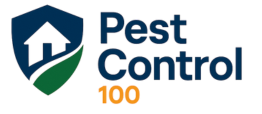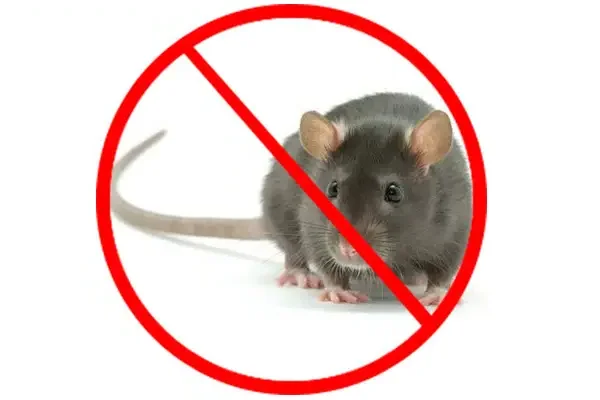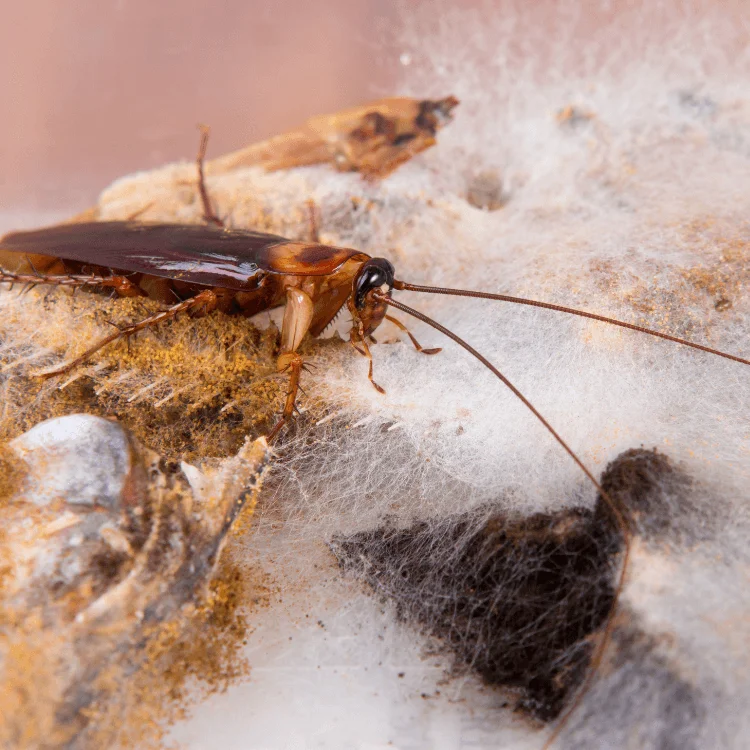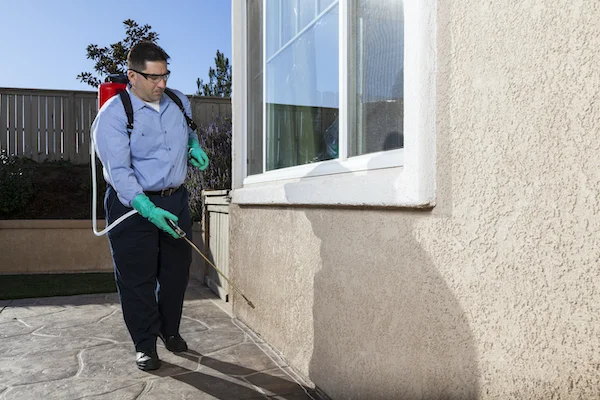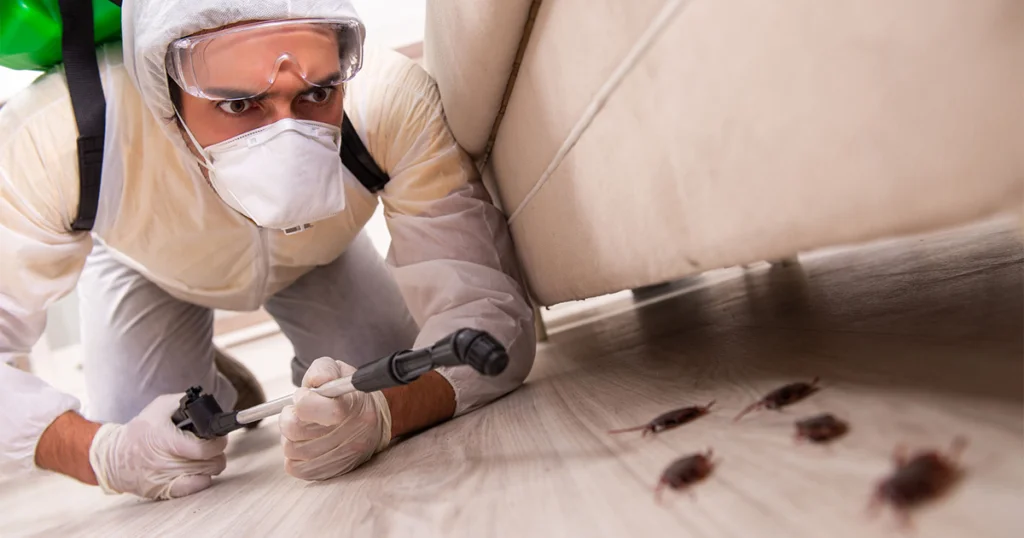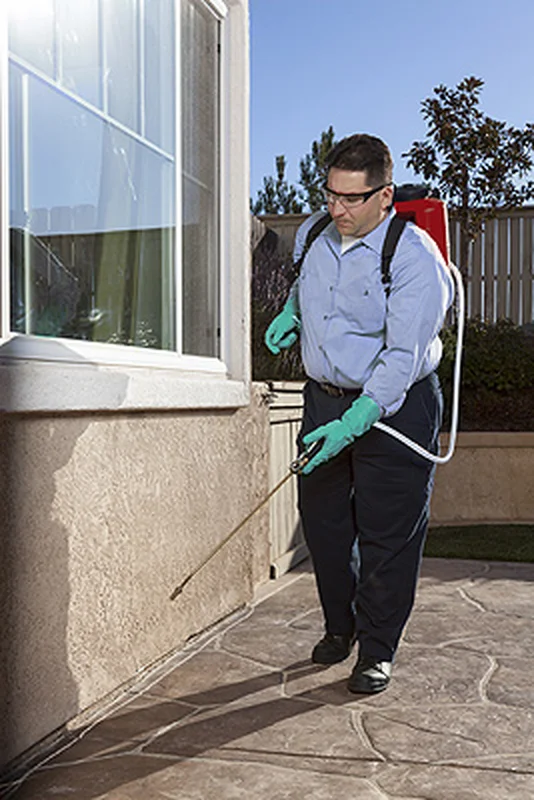Retirement communities represent thoughtfully designed environments where seniors can enjoy their golden years with comfort, security, and peace of mind. These specialized residential settings require pest control approaches that prioritize the unique health considerations, safety requirements, and lifestyle preferences of elderly residents. The combination of shared living spaces, potential medication sensitivities, and the desire for quiet, undisturbed living creates pest management challenges that demand specialized expertise and compassionate service delivery.
Effective pest control in retirement communities must balance comprehensive protection with exceptional attention to resident health, comfort, and daily routines that define quality senior living. Professional senior-focused pest management requires understanding age-related health considerations, medication interactions, mobility limitations, and the community dynamics that make retirement living appealing. Success depends on providing thorough pest elimination while maintaining the peaceful, healthy environments that allow seniors to enjoy their retirement years with dignity and comfort.
Protect your retirement community with pest control designed specifically for seniors.
Health-conscious pest management that prioritizes resident comfort and safety.
Schedule your senior-focused assessment today!
Unique Pest Management Considerations in Retirement Communities
Retirement communities face distinctive pest control challenges that require specialized understanding of senior living environments and elderly resident needs. These unique factors distinguish senior community pest management from standard residential services:
-
Health sensitivity considerations Senior residents may have compromised immune systems, respiratory conditions, or medication regimens that require pest control approaches with minimal chemical exposure and enhanced safety protocols designed specifically for elderly health protection.
-
Mobility and accessibility factors Elderly residents may have limited mobility, use assistive devices, or have difficulty evacuating areas during treatments, requiring flexible scheduling and application methods that accommodate these physical limitations while ensuring comprehensive pest control.
-
Shared living space complexities Retirement communities often feature shared dining areas, recreational facilities, and common spaces that require coordinated pest management approaches addressing both individual units and community areas while minimizing disruption to daily activities.
-
Medication and chemical interaction concerns Senior residents often take multiple medications that may interact with pest control chemicals or create sensitivities requiring careful product selection and application methods that avoid potential health complications or medication interference.
-
Dignity and comfort preservation Pest control activities must respect senior residents' privacy, daily routines, and personal comfort while addressing pest problems discreetly and professionally in ways that maintain the dignified living environment that retirement communities strive to provide.
-
Community management coordination Retirement communities have complex management structures including healthcare staff, activity coordinators, and family members who require clear communication and coordination to ensure pest control activities support rather than interfere with resident care and community operations.
Successful retirement community pest management requires specialized protocols that prioritize resident health and comfort while delivering comprehensive pest protection that maintains the quality of life and peaceful environment that seniors deserve in their retirement years.
Common Pests in Retirement Communities
Retirement communities encounter specific pest species that can significantly impact senior health, comfort, and quality of life. Understanding these pests and their particular risks for elderly residents is crucial for effective, health-conscious management:
Rodents
Health-conscious rodent management for senior living environments
Rodents pose particular health risks for senior residents due to potential disease transmission and the stress that pest encounters can cause elderly individuals. Mice and rats can contaminate food preparation areas, damage personal belongings, and create unsanitary conditions that may be especially problematic for seniors with compromised immune systems or chronic health conditions.
Senior-focused rodent control emphasizes gentle, low-stress elimination methods that protect elderly residents while comprehensively addressing rodent populations. Professional services use senior-safe exclusion techniques, carefully placed monitoring systems, and elimination methods that minimize noise, disruption, and chemical exposure while ensuring complete rodent removal from living areas.
Cockroaches
Specialized cockroach control protecting senior health and comfort
Cockroaches can trigger asthma and allergies that may be particularly severe in elderly residents with existing respiratory conditions. These pests can also carry bacteria and pathogens that pose significant health risks to seniors whose immune systems may be less effective at fighting off infections and diseases.
Cockroach management in retirement communities uses targeted approaches that eliminate infestations while protecting senior respiratory health. Professional services employ precise application techniques, senior-safe products, and comprehensive sanitation programs that address cockroach populations without creating air quality concerns or chemical exposure risks for elderly residents.
Ants
Safe ant elimination preserving senior comfort and mobility
Ant infestations can be particularly distressing for senior residents who may have difficulty cleaning affected areas or managing pest problems independently. Certain ant species can bite or sting, creating safety concerns for elderly residents who may have slower healing or more severe reactions to insect bites.
Ant control in retirement communities focuses on gentle elimination methods that address colonies comprehensively while ensuring that senior residents can continue using affected areas safely. Professional services use senior-appropriate baiting systems and exclusion methods that eliminate ant problems without requiring residents to modify their daily routines or avoid areas of their homes.
Flying Insects
Mosquitoes, flies, and other flying insects can significantly impact senior quality of life by making outdoor spaces uncomfortable and potentially transmitting diseases that may be more serious for elderly individuals with compromised immune systems. Seniors often spend considerable time in outdoor areas for recreation and socialization, making flying insect control essential for maintaining community amenities.
Flying insect management for retirement communities emphasizes creating comfortable outdoor environments where seniors can safely enjoy recreational activities, social gatherings, and exercise programs. Professional services use senior-safe application methods and timing that protects outdoor amenities while minimizing exposure to treatments during peak senior activity periods.
Spiders
Spider encounters can be particularly concerning for senior residents who may have difficulty seeing clearly, moving quickly to avoid spiders, or seeking help if bitten. Venomous spiders pose serious health risks for elderly individuals who may have slower healing and more severe reactions to spider bites than younger adults.
Spider management in senior communities focuses on eliminating dangerous species while reducing overall spider populations in areas where seniors spend time. Professional services provide education about spider identification and implement comprehensive treatments that protect seniors while maintaining the beneficial aspects of spider populations in appropriate outdoor areas.
Stored Product Pests
Pantry pests like grain beetles, moths, and weevils can contaminate food supplies that may be particularly important for seniors on fixed incomes or special diets. Food contamination can also pose health risks for elderly residents who may be more susceptible to foodborne illnesses or nutritional deficiencies.
Stored product pest management includes comprehensive inspection of food storage areas, education about proper storage techniques, and elimination methods that protect food supplies while ensuring that treatments don't contaminate edible items. Professional services help seniors maintain safe, pest-free food storage while respecting dietary needs and budget considerations.
Seasonal Pests
Occasional invaders like stink bugs, boxelder bugs, and cluster flies can overwhelm senior residents who may have difficulty managing sudden pest invasions or understanding that these pests are typically temporary problems. The stress of dealing with large numbers of unfamiliar insects can be particularly challenging for elderly residents.
Seasonal pest management includes education about temporary pest invasions, proactive treatments that prevent mass invasions, and rapid response services that address sudden pest problems before they create significant stress or discomfort for senior residents who may need additional support during pest events.
Health-Conscious Pest Solutions for Senior Living
Senior living environments require exceptional attention to health-conscious pest control methods that protect elderly residents from both pest-related health risks and potential treatment-related health concerns. Senior-safe pest solutions prioritize products and methods specifically selected for compatibility with senior health needs, medication regimens, and age-related sensitivities.
Health-conscious approaches emphasize minimal chemical exposure, targeted application techniques, and treatment timing that accommodates senior daily routines and health considerations. These methods ensure comprehensive pest control while supporting the health and wellness goals that define quality senior living environments.
Senior Health Priority
Our retirement community pest management programs are specifically designed to protect senior health through carefully selected products, gentle application methods, and enhanced safety protocols that prioritize elderly resident wellbeing.
The following table outlines health-conscious pest management approaches specifically adapted for retirement community environments:
| Health-Conscious Method |
Senior Application |
Health Benefit |
| Low-Chemical Approaches |
Emphasis on physical exclusion, biological controls, and minimal chemical usage specifically selected for compatibility with senior health conditions and medications.
|
Reduces potential chemical interactions with medications while providing effective pest control that protects senior respiratory and immune system health.
|
| Precision Application Techniques |
Targeted treatments that place products exactly where needed while avoiding areas where seniors spend time, using equipment that minimizes drift and exposure.
|
Protects seniors from unnecessary chemical exposure while maintaining comprehensive pest control effectiveness throughout living environments.
|
| Respiratory-Safe Products |
Careful selection of products with minimal odor and respiratory impact, particularly important for seniors with asthma, COPD, or other breathing conditions.
|
Maintains respiratory comfort for seniors while providing effective pest control without exacerbating existing breathing difficulties or triggering respiratory episodes.
|
| Medication Compatibility Screening |
Consultation with healthcare staff to ensure pest control products don't interact with common senior medications or medical treatments.
|
Prevents potential drug interactions or health complications while ensuring that pest control supports rather than compromises ongoing medical care.
|
| Stress-Minimizing Protocols |
Gentle service delivery that minimizes disruption to senior routines, provides clear communication, and addresses pest problems with minimal stress or anxiety.
|
Supports senior mental health and comfort while addressing pest problems in ways that maintain dignity and reduce anxiety about pest control treatments.
|
These health-conscious approaches ensure that retirement community pest management supports senior health and wellness goals while providing the comprehensive pest protection that maintains comfortable, dignified living environments for elderly residents.
Retirement Community Management Coordination
Healthcare Staff Collaboration
Effective pest control in retirement communities requires close collaboration with healthcare staff, activity coordinators, and community management to ensure that pest management activities support rather than interfere with resident care and community operations. This coordination ensures that treatments accommodate medical schedules, health considerations, and daily care routines.
Healthcare collaboration includes consultation about resident health conditions that may affect treatment selection, coordination with medication schedules to avoid interactions, and communication with nursing staff about any special considerations needed for individual residents during pest control activities.
Activity and Meal Schedule Coordination
Retirement communities have structured daily activities, meal schedules, and social programs that require pest control timing to minimize disruption to these important aspects of senior life. Professional services coordinate treatments with community schedules to ensure that pest control enhances rather than interferes with resident quality of life.
Schedule coordination includes timing treatments to avoid meal periods, social activities, and therapy sessions while ensuring that pest control activities don't interfere with transportation schedules, visitor hours, or special events that are important for senior resident engagement and wellbeing.
Family Communication Protocols
Family members of retirement community residents often have concerns about pest control safety and effectiveness that require clear, comprehensive communication about treatment methods, safety protocols, and ongoing prevention strategies. Professional services provide detailed information that helps families understand and support pest management decisions.
Family communication includes education about senior-safe pest control methods, updates about treatment schedules and safety protocols, and availability for questions or concerns about pest management activities that affect their elderly family members' health and comfort.
Assisted Living Considerations
Assisted living facilities within retirement communities require additional coordination with personal care staff, medical equipment, and individual resident needs that may affect pest control approaches. These enhanced services ensure that pest management accommodates the higher level of care and supervision required in assisted living environments.
Assisted living coordination includes working around medical equipment that cannot be moved, accommodating residents who cannot leave their rooms during treatments, and ensuring that pest control activities don't interfere with personal care schedules or medical appointments that are critical for resident health maintenance.
Provide your residents with the gentle, effective pest protection they deserve. Our retirement community specialists understand
senior-focused pest management that prioritizes health and comfort.
Schedule your community consultation today!
Comprehensive Senior Living Protection
Independent Living Communities
Independent living communities require pest management that respects senior autonomy while providing comprehensive protection for individual units and shared community amenities. Professional senior residential pest protection addresses both private living spaces and common areas while accommodating the active lifestyle and independence that characterize these communities.
Independent living programs include flexible scheduling that accommodates senior preferences, education about pest prevention that seniors can implement independently, and treatment methods that protect individual units while supporting community-wide pest management goals through coordinated approaches.
Assisted Living Facilities
Assisted living facilities require enhanced pest management protocols that account for higher levels of medical care, increased supervision needs, and residents who may have cognitive impairments or physical limitations that affect their ability to understand or respond to pest control activities appropriately.
Assisted living pest management includes enhanced safety protocols, coordination with medical care schedules, and specialized communication methods that ensure residents receive appropriate information and support during pest control activities while maintaining comprehensive protection for these more vulnerable senior populations.
Memory Care Units
Memory care facilities require specialized pest management approaches that account for residents with dementia or Alzheimer's disease who may not understand pest control activities or may have unpredictable reactions to changes in their environment. These enhanced protocols ensure safety while minimizing confusion or distress.
Memory care pest management includes specialized training for technicians working with cognitive impairment, enhanced communication with care staff, and treatment methods that minimize environmental changes or disruptions that could affect residents with memory-related conditions.
Active Adult Communities
Active adult communities serve younger seniors who maintain active lifestyles and may have different pest control preferences and requirements compared to traditional senior living facilities. These communities often feature recreational amenities and outdoor activities that require specialized pest management approaches.
Active adult pest management includes protection for recreational facilities, golf courses, swimming pools, and other amenities while providing comprehensive residential protection that supports the active lifestyle and outdoor activities that characterize these vibrant senior communities.
Why Retirement Communities Choose Senior Care Specialists
Retirement community pest control requires specialized knowledge of senior health considerations, age-related sensitivities, and community management that distinguishes senior-focused services from standard residential pest management. Choosing experienced senior care specialists ensures appropriate solutions for elderly residents:
-
Senior health expertise Professional pest control specialists with training in senior health considerations, medication interactions, and age-related sensitivities that require specialized product selection and application methods designed specifically for elderly resident protection.
-
Healthcare facility experience Knowledge of healthcare regulations, infection control protocols, and medical facility requirements that ensure pest control activities comply with healthcare standards while maintaining effectiveness in senior living environments.
-
Compassionate service delivery Training in senior communication, dignity preservation, and stress-minimizing techniques that ensure pest control activities support rather than compromise the comfort and wellbeing of elderly residents during treatment periods.
-
Community coordination skills Experience working with retirement community management, healthcare staff, and family members to coordinate pest control activities that support community operations while addressing diverse stakeholder concerns and requirements.
-
Emergency response capabilities Specialized protocols for addressing pest emergencies that may pose immediate health risks to vulnerable senior populations, with rapid response capabilities designed specifically for healthcare and senior living environments.
By choosing professional exterminators with senior care expertise and healthcare facility experience, retirement communities ensure that their pest management programs enhance rather than compromise the health, comfort, and dignity that define quality senior living environments.
Protect your senior residents with expert pest management designed for their unique needs. Our senior care specialists provide
health-conscious retirement community pest control –
ensure your residents' comfort and safety today!
Senior Living Community Types We Serve
Professional retirement community pest management adapts to the diverse types of senior living environments, each with unique characteristics that influence pest pressure and resident care requirements:
Continuing Care Retirement Communities (CCRC)
Multi-level care communities offering independent living, assisted living, and skilled nursing care require comprehensive pest management that adapts to different levels of resident care while maintaining consistent protection throughout all facility areas and care levels.
55+ Active Adult Communities
Age-restricted communities for active seniors require pest management that protects recreational amenities, golf courses, and outdoor activities while providing residential protection that supports the active lifestyle of younger senior residents.
Senior Apartment Complexes
Multi-unit senior housing requires coordinated pest management that addresses individual apartments and shared common areas while accommodating the diverse needs and preferences of senior residents living independently.
Skilled Nursing Facilities
Healthcare-focused senior facilities require pest management that meets healthcare regulations and infection control standards while protecting residents with serious health conditions and complex medical needs.
Year-Round Senior Community Protection
Spring (March-May)
- Gentle seasonal pest prevention
- Outdoor area preparation
- Health assessment coordination
- Staff and family education
Focus: Preparing community defenses for active season while coordinating with spring health assessments and outdoor activity preparation.
Summer (June-August)
- Outdoor comfort maintenance
- Flying insect management
- Recreation area protection
- Heat-sensitive scheduling
Focus: Ensuring comfortable outdoor spaces for senior activities while accommodating heat sensitivity and summer health considerations.
Fall (September-November)
- Indoor preparation protocols
- Respiratory health protection
- Holiday gathering preparation
- Winter readiness programs
Focus: Transitioning to indoor protection while preparing for holiday activities and addressing seasonal respiratory concerns.
Winter (December-February)
- Indoor air quality maintenance
- Comfort-focused treatments
- Health monitoring coordination
- Spring preparation planning
Focus: Maintaining healthy indoor environments during peak senior indoor time while coordinating with increased healthcare activities.
What Senior Community Clients Say
"Our residents' health and comfort come first, and PestControl100 understands that completely. Their gentle approach eliminated our pest issues without causing any respiratory problems or medication concerns for our seniors. Professional and caring service."
- Margaret R., Sunrise Senior Living Director
★★★★★
"As a family member, I was concerned about pest control chemicals affecting my 89-year-old mother. The health-conscious approach gave me complete peace of mind while solving the ant problem in her assisted living unit. They really understand senior needs."
- Robert K., Family Member
★★★★★
"Managing pest control for 200 senior residents requires special expertise and sensitivity. Their coordination with our healthcare staff and gentle treatment methods make them the perfect partner for our retirement community."
- Dr. Patricia M., Golden Years Community Administrator
★★★★★
Frequently Asked Questions
How do you ensure pest control treatments are safe for seniors with health conditions?
We use specialized health-conscious products and application methods specifically selected for senior safety. This includes consultation with healthcare staff about resident health conditions, careful product selection to avoid medication interactions, and application techniques that minimize exposure while maintaining effectiveness. All treatments are designed to protect vulnerable senior populations with enhanced safety protocols.
Can pest control be coordinated with medical care schedules and activities?
Yes, we specialize in coordinating pest control activities with healthcare schedules, meal times, therapy sessions, and community activities. Our flexible scheduling ensures that treatments support rather than interfere with medical care and daily routines that are important for senior health and wellbeing. We work closely with community staff to optimize timing and minimize disruption.
What special considerations apply to memory care and assisted living facilities?
Memory care and assisted living require enhanced protocols including specialized technician training for working with cognitive impairment, increased coordination with care staff, and treatment methods that minimize environmental changes or confusion. We provide additional safety measures and communication support to ensure treatments are appropriate for residents with varying levels of cognitive and physical capabilities.
How do you handle pest emergencies that might affect senior health and safety?
We provide specialized emergency response for retirement communities with protocols designed specifically for vulnerable senior populations. Emergency services include rapid response for health-threatening pest situations, coordination with healthcare staff during emergencies, and immediate safety measures that protect seniors while addressing urgent pest problems. Our emergency protocols prioritize senior health and safety above all other considerations.
